
13 Courses
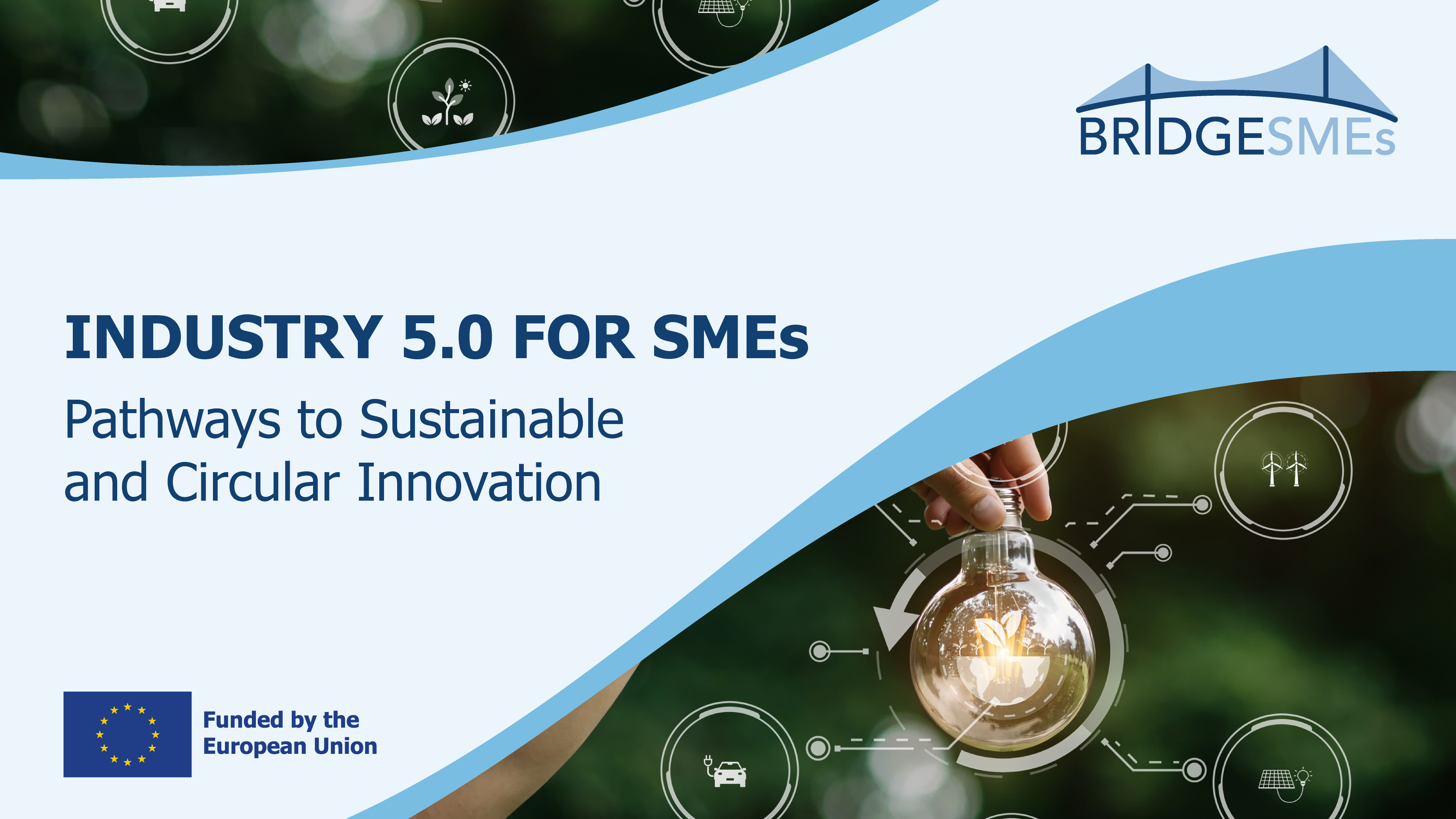
General
BRIDGESMEs - Industry 5.0 for SMEs: Pathways to Sustainable and Circular Innovation
The module offers
SMEs a future-oriented sustainability perspective with the objective of
introducing SMEs to the European vision of Industry 5.0, where sustainability,
resilience and human-centricity drive innovation and competitiveness. It will
cover emerging EU regulations and policy trends , while highlighting opportunities
in decision making, ecodesign, digitalization for sustainability and circular
strategies. Innovative concepts such as Digital Product Passports (DPP) and
Safe and Sustainable by Design (SSbD) will be presented alongside practical LCA
methodologies/tools.
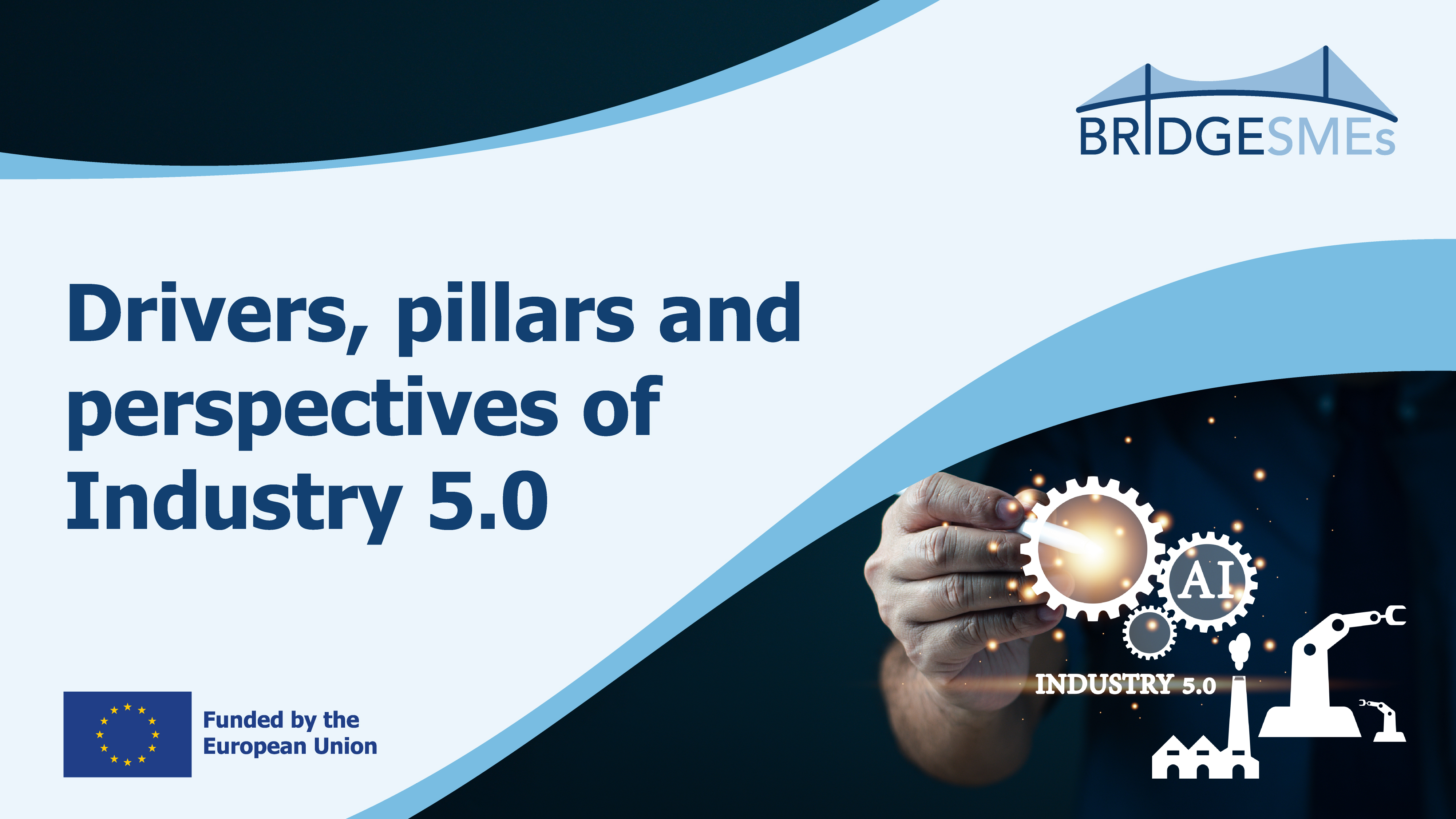
General
BRIDGESMEs - Drivers, pillars and perspectives of Industry 5.0
This training module introduces the concept of “industrial revolution”
and what is Industry 5.0, with its main drivers.
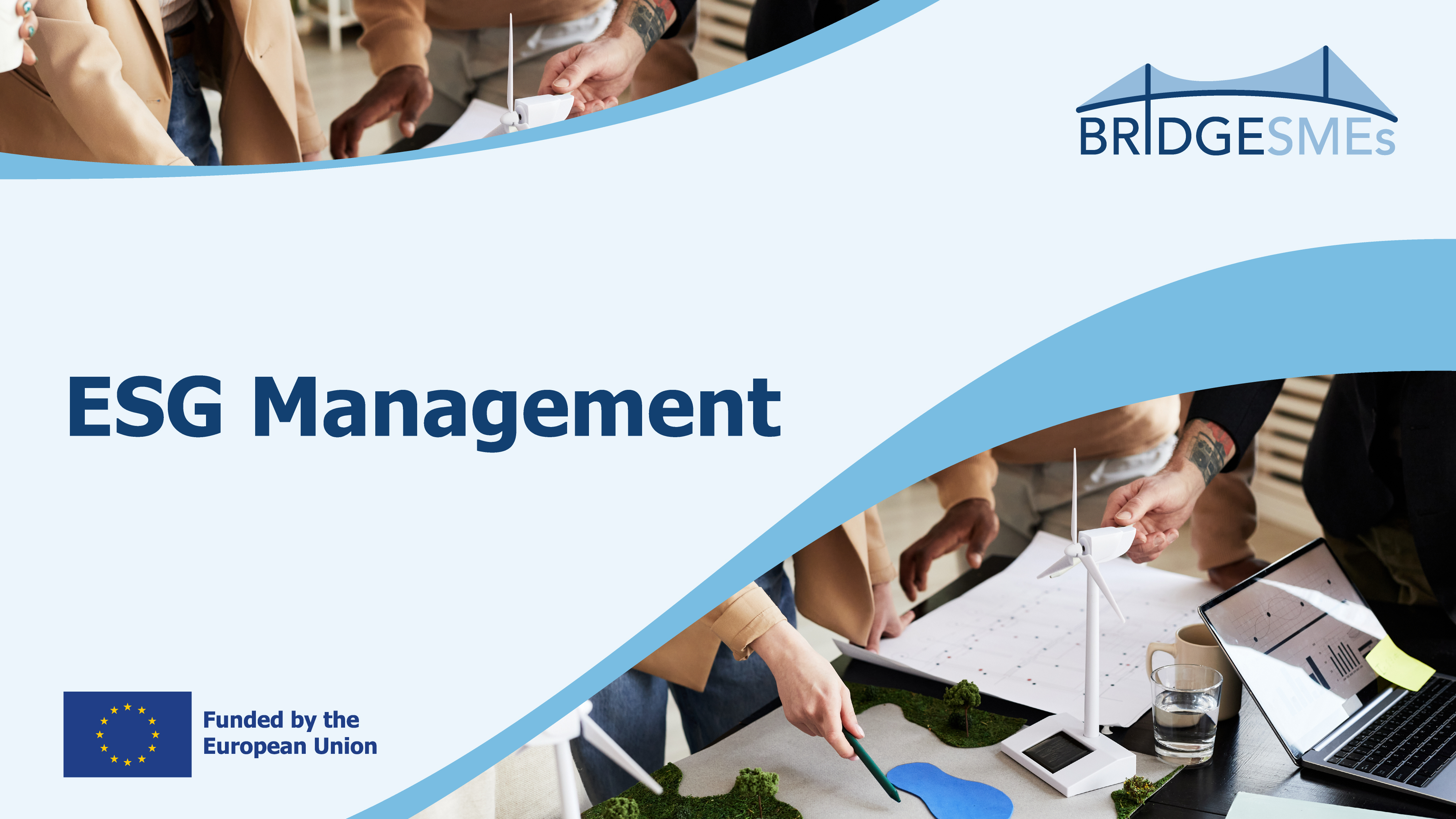
General
BRIDGESMEs - ESG Management
This module introduces SMEs to sustainability requirements and opportunities within the European context. It provides a practical overview of ESG (Environmental, Social, Governance), circular economy principles, and regulatory drivers such as the EU Green Deal and CSRD. The course focuses on simple, actionable steps SMEs can take to improve sustainability performance and identify “quick wins”.

General
BRIDGESMEs - Cybersecurity Essentials for the Automotive Supply Chain: Protecting Data, Processes, and Plants
The training provides an overview of information security certification in the automotive supply chain (TISAX) and compliance with the NIS2 directive.
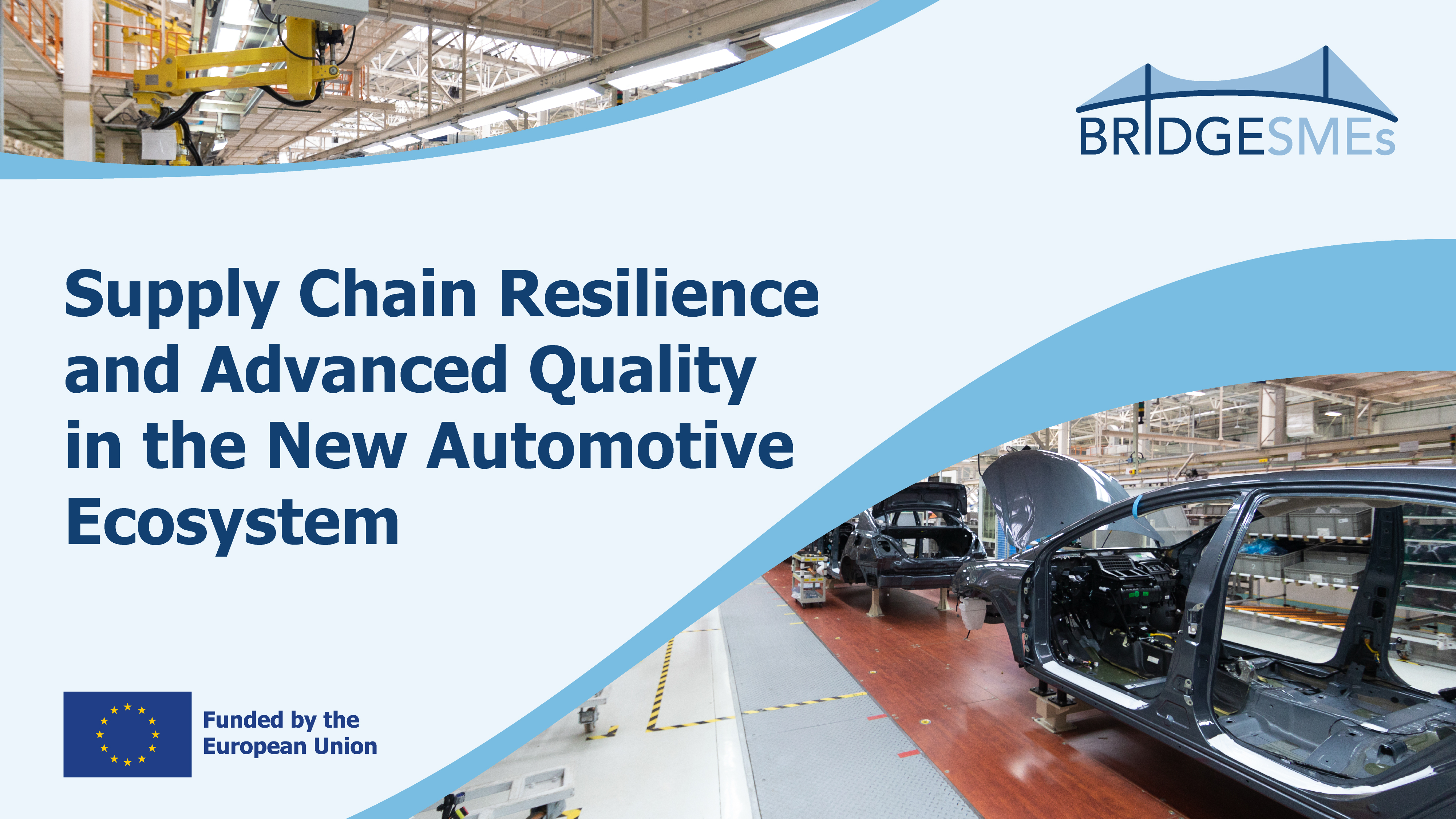
General
BRIDGESMEs - Supply Chain Resilience and Advanced QMS in the New Automotive Ecosystem
QMS for automotive companies, process organization, risk analysis and business continuity in the supply chain.
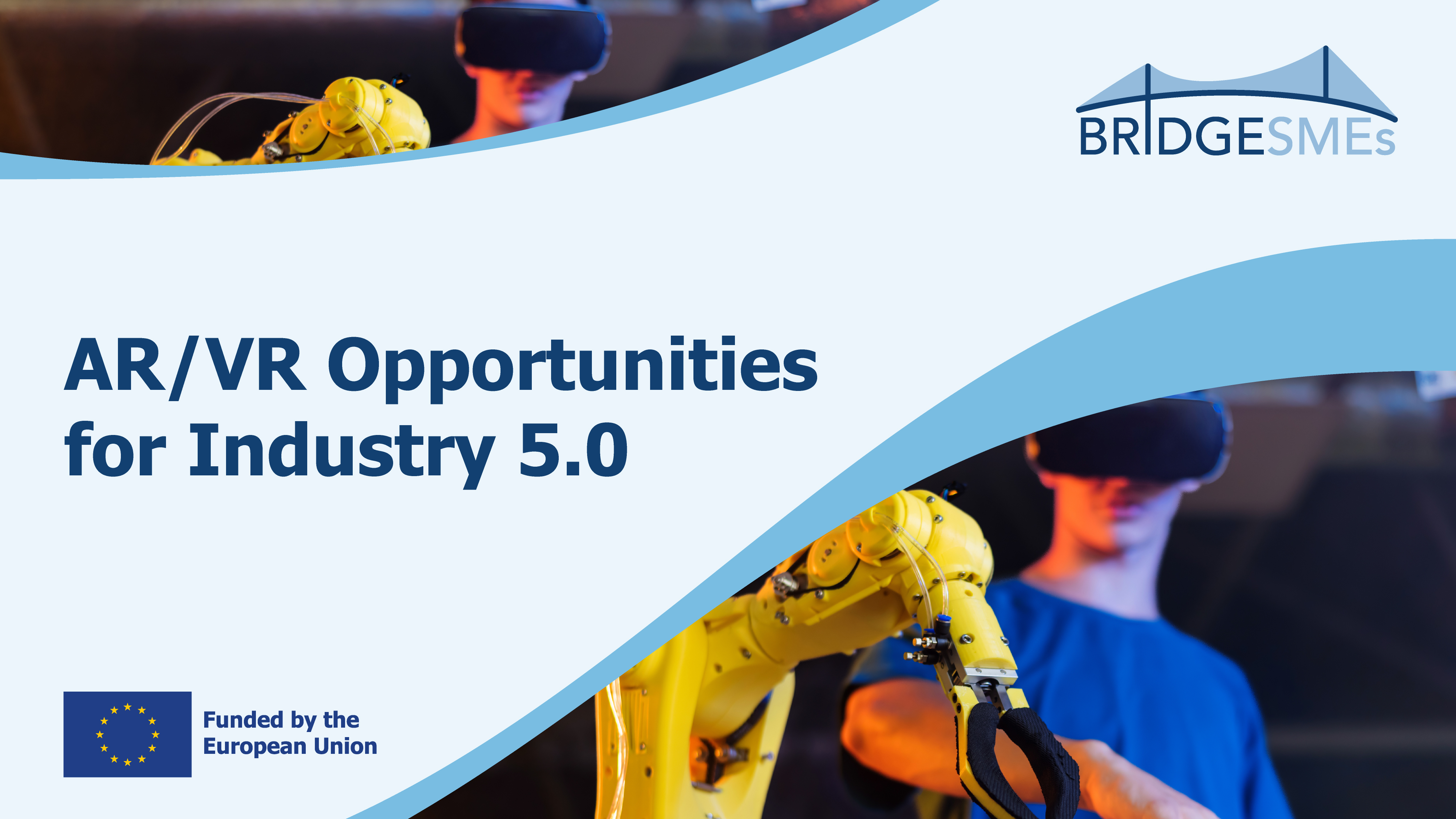
General
BRIDGESMEs - AR/VR Opportunities for Industry 5.0
This course provides a practical introduction to the use of Augmented and Virtual Reality (AR/VR) technologies in the context of Industry 5.0. Participants will explore how immersive tools can enhance workforce training, streamline maintenance processes, and transform product visualization and configuration workflows.
Through a combination of short lectures, interactive exercises, and guided assignments, participants will learn where and how to implement AR/VR within their own organizations. Each module connects theoretical understanding with real-world applications, helping participants identify opportunities for efficiency, cost savings, and innovation.
The course is designed for SME managers, team leaders, and digital transformation coordinators who want to gain a hands-on understanding of AR/VR solutions.
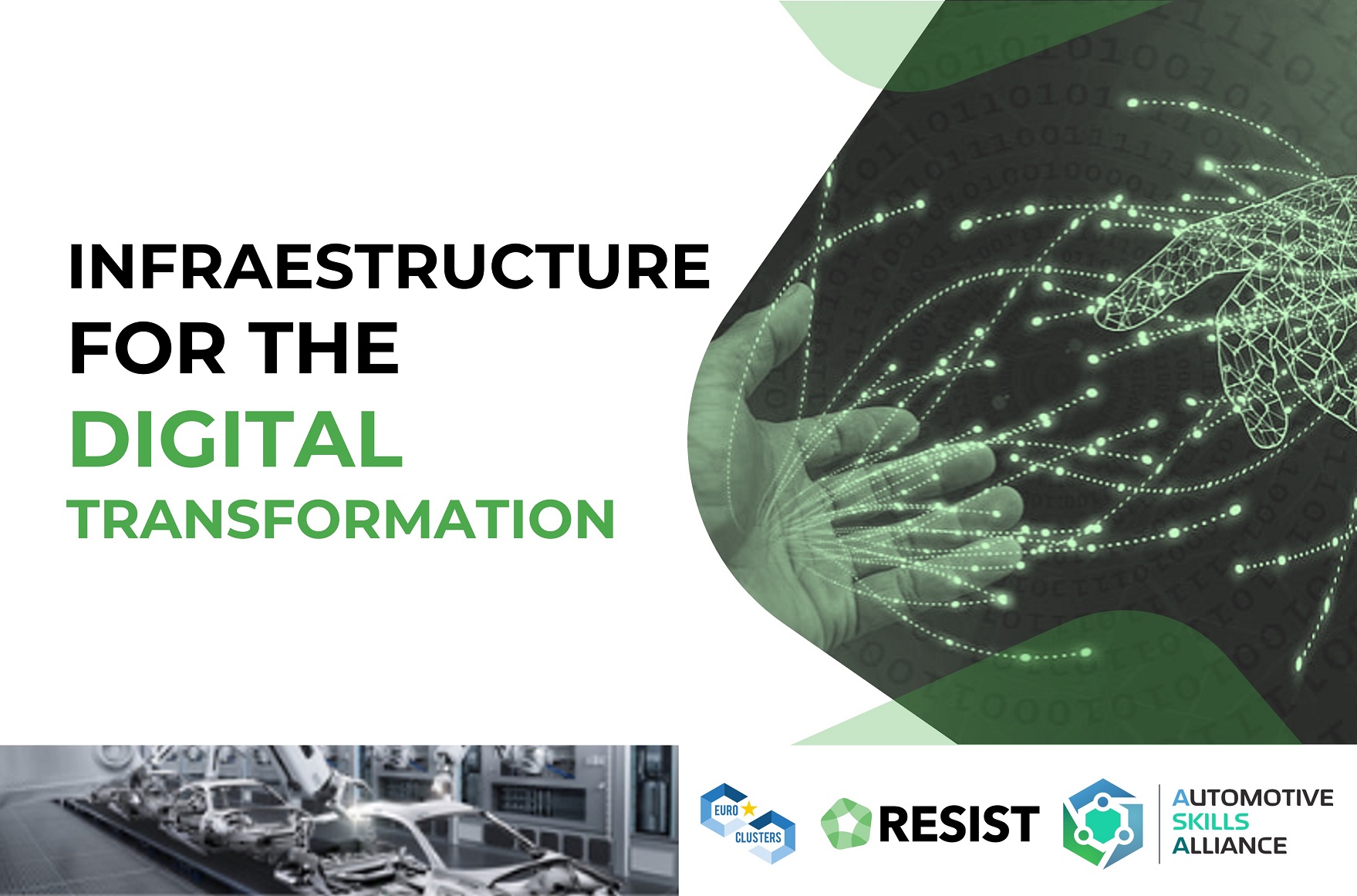
General
Infrastructure for the Digital Transformation
The course “Infrastructure for the Digital Transformation. Guidelines for SMEs in the Mobility, Transport and Automotive ecosystem (MTA)” aims to provide a clear vision of the benefits of the use of Artificial Intelligence in Manufacturing for companies, specifically for SMEs.
CONTENT STRUCTURE
The course is structured in 4 chapters or modules.- Chapter 1: Essentials of AI in Advanced Manufacturing
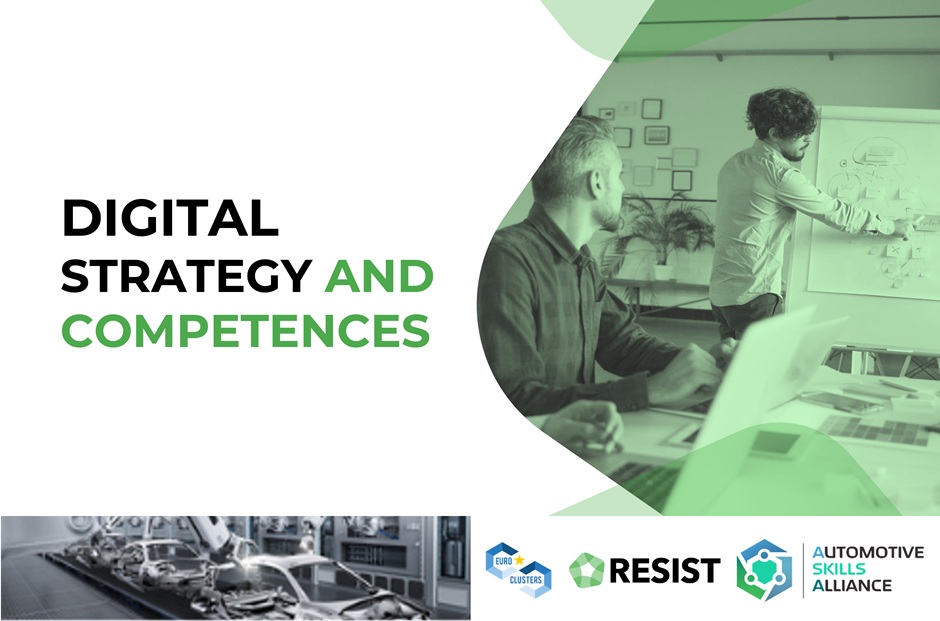
General
Digital strategy and comptencies
In a world where digital technologies continually reshape the rules of the game, digital transformation becomes crucial for the survival and growth of businesses. The "Digital Strategy and Competencies" training module is designed to provide participants with a comprehensive overview of how digital strategy can reform company structures, processes, and culture.
Module 1: Fundamentals of Digital Transformation
Module 2: Innovation and Technology in Businesses
Module 3: Leadership and Team Dynamics
Module 4: Implementation and Competencies
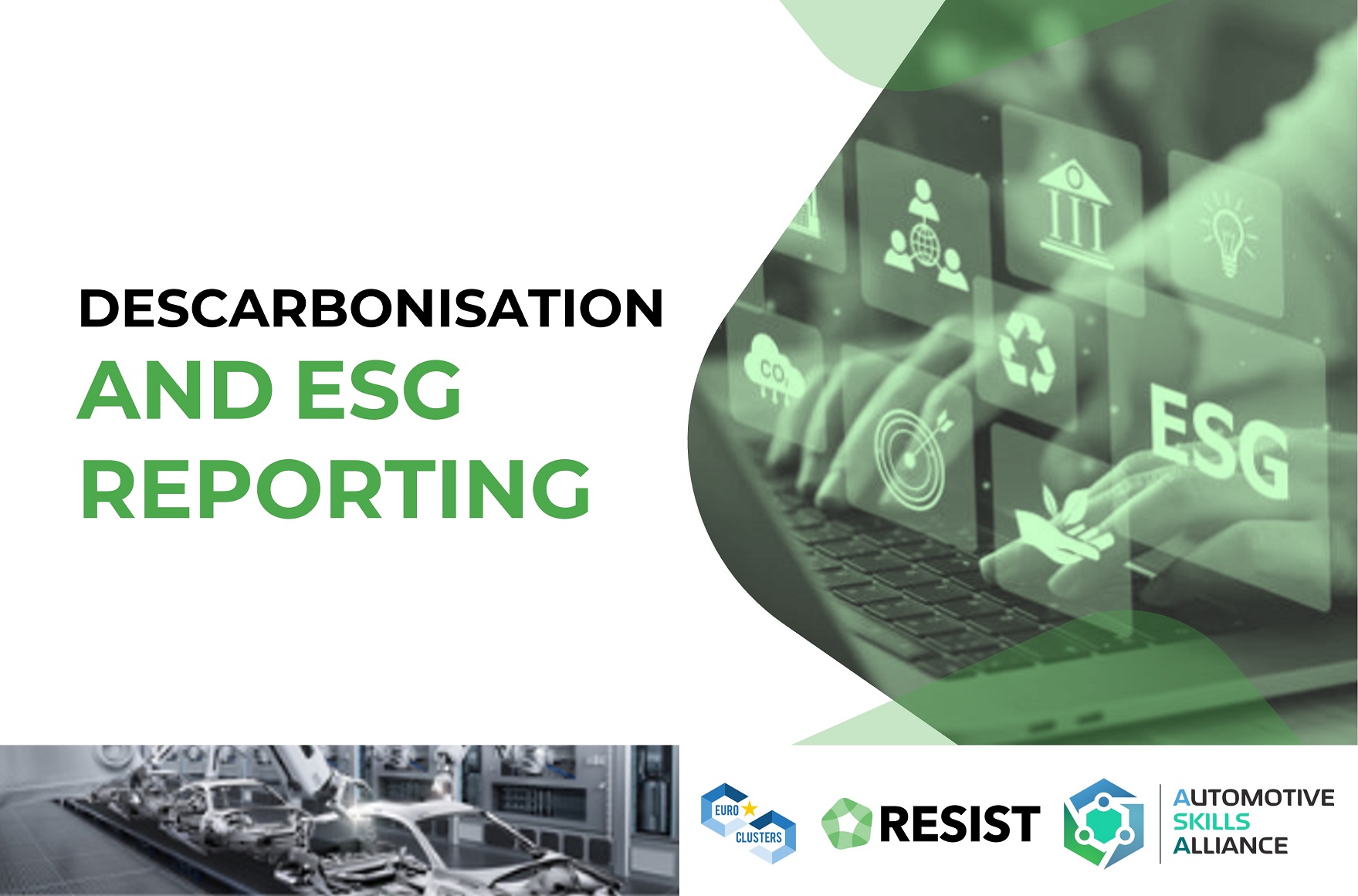
General
RESIST - Decarbonisation in the industry
The course is structured in four chapters or modules.
- Chapter 1: Introduction to decarbonisation in the industry
- Chapter 2: ESG reporting
- Chapter 3: Key strategies for decarbonising the industry
- Chapter 4: Best practices and case studies

General
RESIST - Energy savings
The course “Energy Savings: How energy efficiency can reduce environmental impact and operating costs of SMEs” aims to introduce the concept of energy savings in the mobility, transportation and automotive ecosystem. During this course, the reasons that caused the current global energy crisis will be explained. In addition, how energy consumption works will be explained and strategies will be provided to companies to manage their energy consumption, saving money and reducing their environmental footprint. Finally, examples of pioneering companies in sustainable energy management will also be provided.
CONTENT STRUCTURE
The course is structured in four chapters or modules.- Chapter 1: Introduction: in the first chapter, the main objective is to know the reasons why the global energy crisis broke out and how it is impacting the European automotive industry. We will also learn about the main political actions launched by Europe to confront the crisis and we will understand why energy saving is a key tool to promote the sustainability of companies.
- Chapter 2: Understanding energy consumption: in the second chapter, the main objective is to understand the concept of energy consumption and how it relates to the use of energy resources. We will learn about the energy consumption in the mobility, transport and automotive ecosystem and what are the advantages for SMEs of reducing energy consumption.
- Chapter 3: Key strategies related to energy: in this third chapter, the main objective is to learn about the key strategies related to energy. We will explain the main tips for manufacturing plants, structured in six different strategies.
- Chapter 4: Success stories: The course ends by introducing main success stories on energy savings in the mobility, transport and automotive ecosystem.
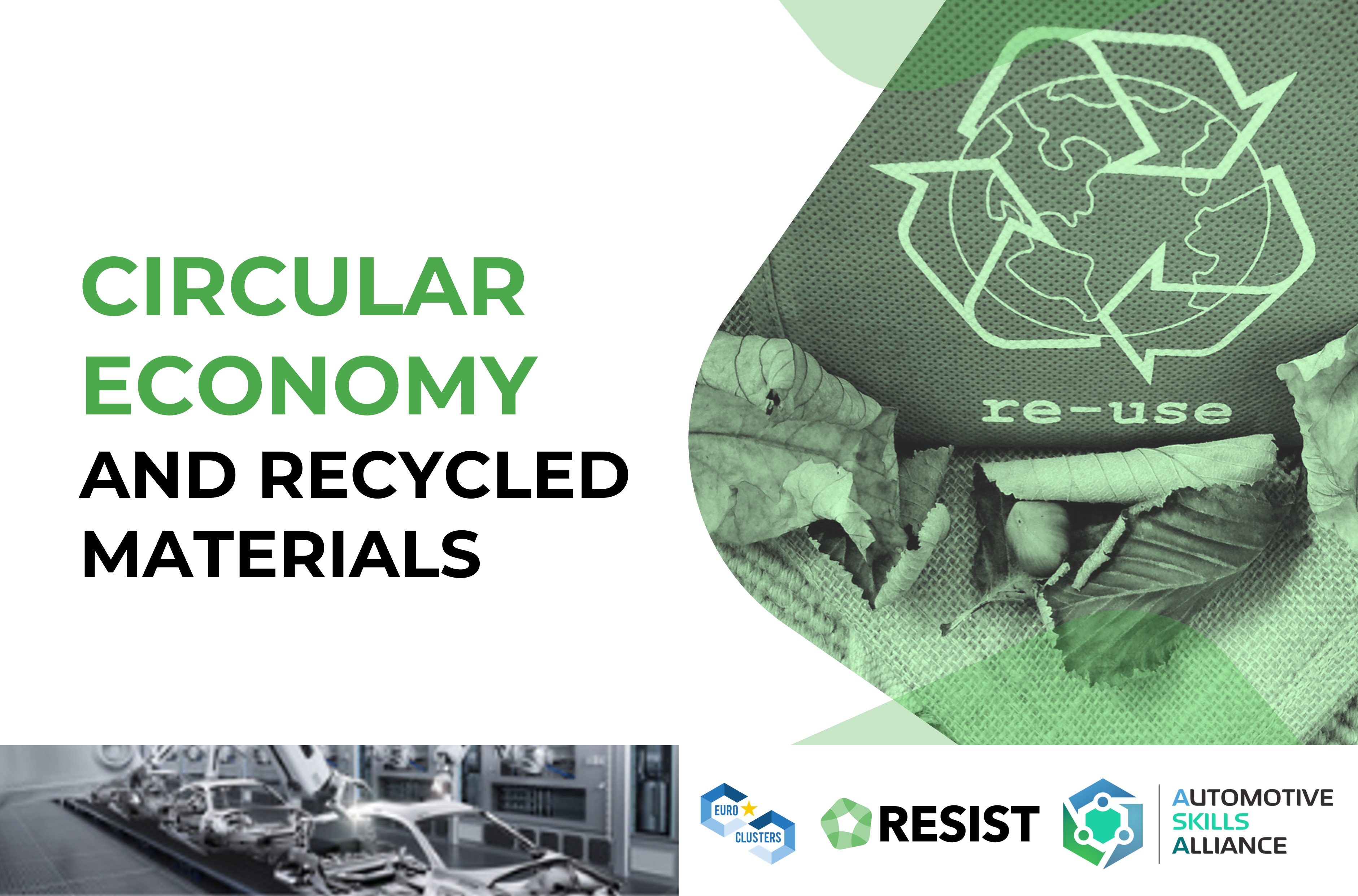
General
RESIST - Circular Economy Fundamentals
In this Training, the participants get to know the fundamentals of Circular Economy principles and learn how to exploit circular economy opportunities for their business.
Circular Economy (CE) fundamentals represent a transformative shift from linear consumption to sustainable resource management. CE principles include designing for durability, optimizing resource use, and establishing closed-loop systems. These principles aim to reduce waste, conserve resources, and promote economic growth with a reduced environmental footprint. CE provides a vital framework for addressing today's sustainability challenges and fostering a more resilient future.
CONTENT STRUCTURE
The course is structured in six chapters:
- Chapter 1: Introduction
- Chapter 2: Circular economy from a company's perspective
- Chapter 3: Two key paths for the transition to a Circular economy
- Chapter 4: Circular economy framework - part 1: Reuse and Repair
- Chapter 5: Circular economy framework - part 2: Refurbish and Remanufacture
- Chapter 5: Basic Strategies and Conclusion
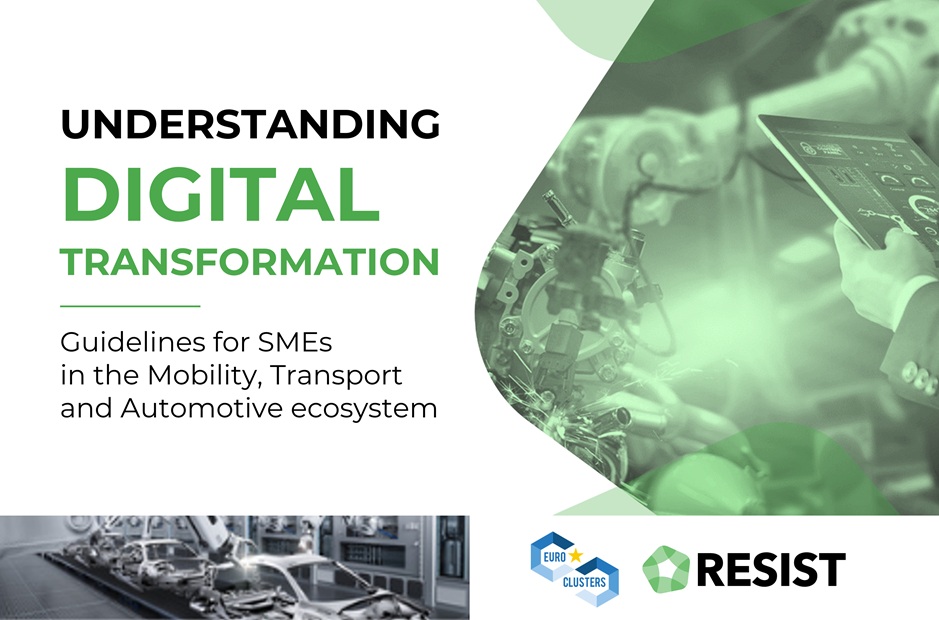
General
RESIST - Understanding Digital Transformation
The course “Understanding Digital Transformation. Guidelines for SMEs in the Mobility, Transport and Automotive ecosystem (MTA)” aims to provide a clear vision of the benefits of digital transformation for companies, specifically for SMEs. It is about offering guidelines and recommendations that help SMEs in the MTA ecosystem to start a transformation process by incorporating new digital technologies that improve their processes, products or business models.
CONTENT STRUCTURE
The course is structured in four chapters or modules.- Chapter 1: Introduction – What do we mean by Digital Transformation?: In the first chapter, the concept of Digital Transformation is defined, starting from the first industrial revolution to the present moment. The basic principles of digital transformation, its benefits for companies and the obstacles and challenges that different experts have detected are explained.
- Chapter 2: Digital transformation trends driving the future of the industry: In chapter 2 of the course, the main trends in the field of digital transformation are defined, both in the short and long term. A review is made of the technologies that are changing the mobility, transport and automotive ecosystem, as well as those that will mark its future.
- Chapter 3: How to start a Digital Transformation process?: In chapter 3 of the course, the main steps that an SME must follow to correctly start a digital transformation process are established. The objective is to encourage companies in the MTA ecosystem to take the step and help them start the process.
- Chapter 4: Next step – The Industry 5.0 revolution: The course ends by introducing the concept of Industry 5.0, which will mark the future of mobility, transport and automotive companies. Although the concept already emerged in 2010, companies are still beginning to learn its basic principles. For this reason, this chapter explains how it arises, what it implies and what its benefits are for companies.
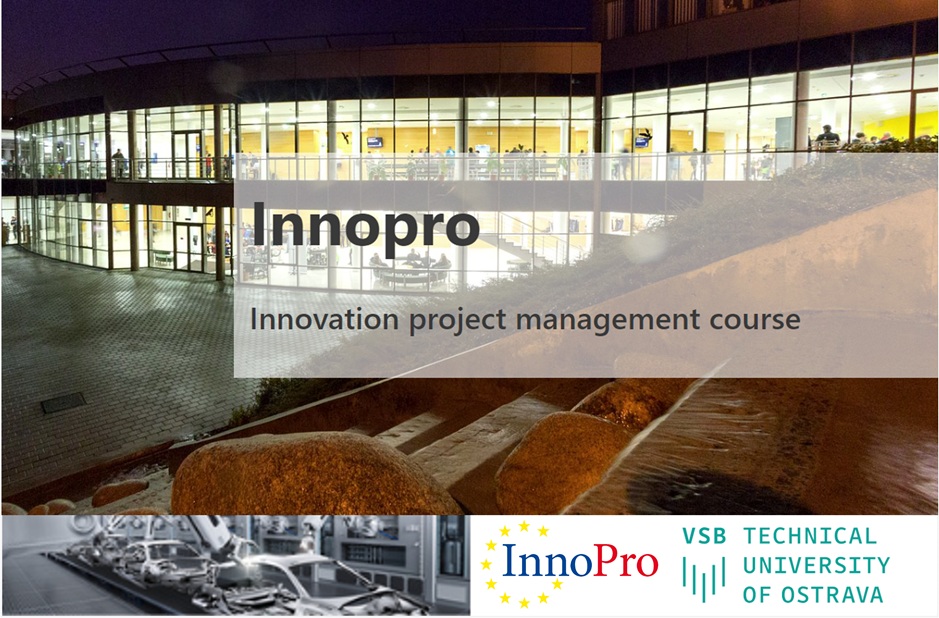
General
Management of Innovation Projects
The course entitled Innovation Project Management (InnoPro) places emphasis on the linking methods
of project management with technical-economic-managerial aspects of innovation projects. The
course is training-based (including exchange of good practices and workshops) and developed along
with e-learning support (on-line documentation and e-learning sessions). The InnoPro course focuses
on practical aspects of project management and innovation issues which companies and institutions
in the R&D sector often face. The main objective of the course is to develop relevant and high-quality competence related to the preparation and management of innovation projects with the use of
innovative teaching methods, tools and innovative up to date content.
This main objective will be supported by the following sub-objectives:
- Incorporation of the latest methods and tools into the course.
- Development of students’ practical skills meeting the demand of the labour market and the R&D sector.
- Support of teachers’ and lecturers’ competence in interactive training.
- Enabling everyone to self-study and educate themselves.
- Promotion of lifelong learning in order to increase employability.
- Facilitation of modernisation and quality improvement in education and training through international cooperation and best practice exchange among universities and companies.